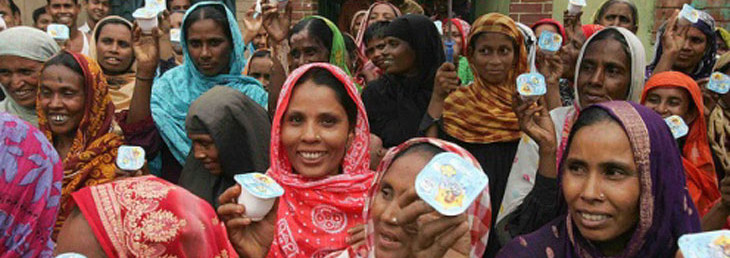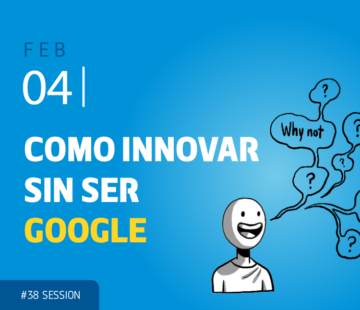Danone + Grameen: a paradigmatic case of social co-innovation

Definitions of social innovation abound, each slightly different. Most would agree to define social innovations as any new ideas (products, services or models) that meet social needs more effectively than alternatives. So defined, social innovations can come from individuals, groups or organizations in the nonprofit, public and even for-profit sectors. As perspectives collide to spark new ways of thinking, they are increasingly happening in the spaces between these three contexts.
Therefore social innovation is becoming a strong generator of new kinds of unexpected relationships and collaborations. It’s not just that existing social, cultural, economic and environmental challenges are complex enough to resolve to need all kinds of talents, skills and perspectives. It’s also that the mix of “social good” and economic logic can be a powerful source for prosperity but also an area of highly troubled waters better to navigate with somebody who knows where the dangerous currents could appear.
Grameen Danone Foods, a joint-venture between Danone and Grameen, is one of the most known of such unexpected collaborations in social innovation involving a big multinational for-profit corporation. The company was founded in 2006 in Bangladesh with a mission of reducing poverty and bringing healthy nutrition to the poor. The joint venture produces a yoghurt enriched with crucial nutrients at a price of which even the poorest can afford.
Other benefits exist along the whole value chain. The collaboration between Danone and Grameen reduce poverty by creating business and employment opportunities for local people since the milk for the yoghurt is purchased from local micro-farmers. Sales ladies distribute the yoghurt door-to-door and receive a 10% commission. Several thousand units of the yogurt are sold daily, both by door-to-door “Grameen ladies” and through more than 12,000 shops. Grameen Danone mixes a social business model with a cross-consumer subsidy approach, selling its yogurt in rural areas at much lower prices than in cities.
When Danone decided to enter this new region, a collaboration with Muhammad Yunus was proposed. Yunus is the founder of Grameen Bank and a creator of the concept of micro-credit. Grameen offered Danone a viable way to gain insight into another legal, regulatory, and political environment. It also provided an opportunity to better understand the needs and purchasing behaviors of the poor, as well as to develop ways of reaching lower-income consumers. Danone added to the mix the opportunity to innovatively help the poor meet their basic survival needs through a sustainable, market-based solution.
Grameen Danone Foods Ltd
Grameen Danone in Wikipedia
